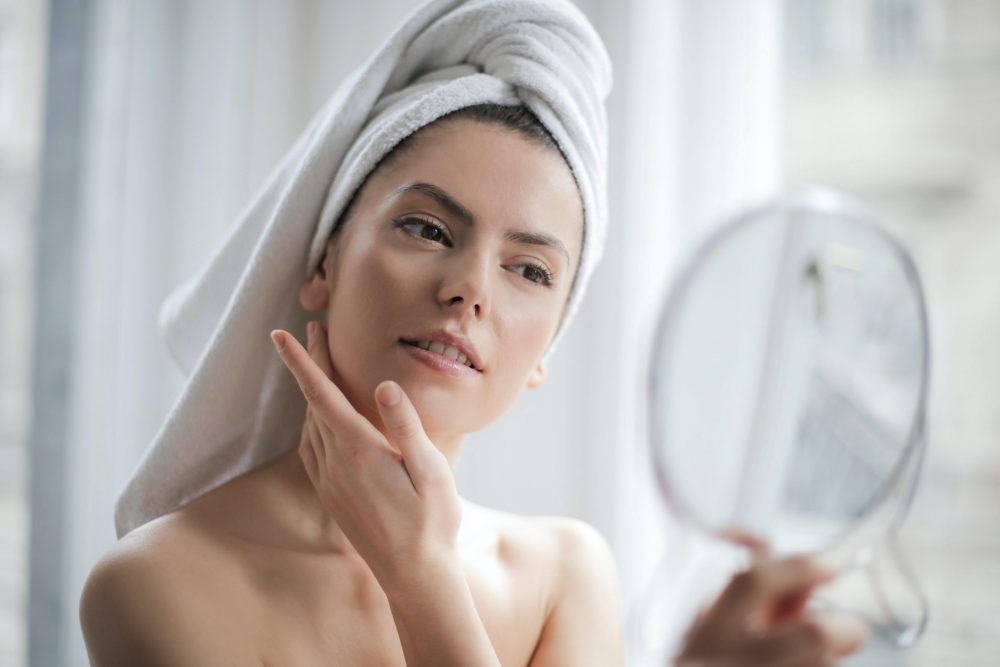As we age, our complexion undergoes a variety of changes. Human skin is sensitive to many common factors, including sunlight, hormones, pollution, and medications. Although the color of your skin and any pigmentation disorders may not be in your control, you can make a difference in your complexion by focusing on the foods you consume. Our diets are a primary way of contributing to the overall appearance and health of our skin.
How is skin affected by nutrition?
Although we cannot prevent our skin from aging, nutrition can be critical in how quickly those signs appear. Vitamins and minerals are a necessary element of our overall health and have an equal impact on our complexion. When we consume nutrients that contain substantial amounts of vitamins A and C, our body responds more positively than when we consume heavy carbohydrates and fats. Our skin responds to various foods in different ways:
- Carbohydrates: increases wrinkles, can lead to acne
- Red meats: can protect against skin cancer
- Vitamin A and C: acts as an antioxidant and protects your skin from sun damage and pollution
- Sugar: affects skin elasticity, increases wrinkles, can cause acne breakouts
- Fish (Omega 3): can improve dryness and decrease sensitivity to the sun
- Dairy: can increase oil production and lead to acne
- Nuts and seeds: helps maintain a balanced complexion and protects the skin against cell damage
The nutrients we consume can directly impact our complexion by promoting the creation of specific chemicals and hormonal responses in our bodies. As with most things, too much of anything can do more harm than good, so maintaining a balanced diet is the best way to ensure that your body’s needs are met.
Diets that can care for your skin
Abiding by general nutritional guidelines and eating a balanced diet is the primary way to benefit your complexion. However, several more specific diets may further result in beautiful skin:
Keto
A keto diet eliminates most carbohydrates and prioritizes proteins and fats. However, this includes refraining from consuming too many fresh fruits and vegetables, which are necessary for skin health. This particular diet is most critical to skin health in avoiding processed foods. While keto may be a beneficial option for minimizing the intake of processed foods, it may not be the best long-term solution for skincare.
Whole30
Similar to the keto diet, Whole30 eliminates processed foods and prioritizes foods on the low glycemic index. Whole30 avoids additives, grains, sugars, alcohol, dairy, and legumes for 30 days to cleanse the body of undesirable toxins. The key in this diet is the elimination of inflammation in the body and hormonal imbalances. However, considering this diet’s restrictive nature, it is most often used as a tool for weight-loss rather than skincare.
Vegetarian/Vegan
Removing animal proteins from any diet can minimize your intake of fats and cholesterol. Additionally, if done correctly, vegetarian and vegan diets can help you find the necessary nutrients in more wholesome and natural ingredients. However, it can be challenging to consume nutrients like iron, calcium, and vitamin D, which are beneficial for long-term health.
These diets maintain some elements of positive skincare practices, including the elimination of processed foods and minimizing high glycemic index options. While a strict Whole30 or keto diet may not be the exact solution for your skincare routine, taking aspects from each can help form a more comprehensive diet plan to benefit your complexion.
Dietary additions to benefit skin health
In addition to maintaining a balanced diet, there are several practices to adopt that will benefit the long-term appearance of your skin:
- Stay hydrated: water is central to any balanced diet and helps flush our bodies of toxins
- Avoid consuming too much sugar or dairy: these two foods can wreak the most havoc on your skin by overproducing oils and causing an imbalance in hormones
- Practice good hygiene: remove makeup and cleanse daily to avoid a build-up of excessive oils or dirt
- Apply toners and moisturizers: after cleansing your skin, remove any remaining impurities with a facial toner and replenish it with a non-pore clogging moisturizer
- Apply SPF daily: Adding even a slight level of SPF to your daily regimen will protect your skin from sun exposure and prevent wrinkles
Our skin requires a lifetime of support through nutrition and daily care. While we can’t entirely prevent the effects of aging or the development of blemishes, we can prepare our body with the proper nutrients to strengthen its longevity and provide a more youthful appearance.


